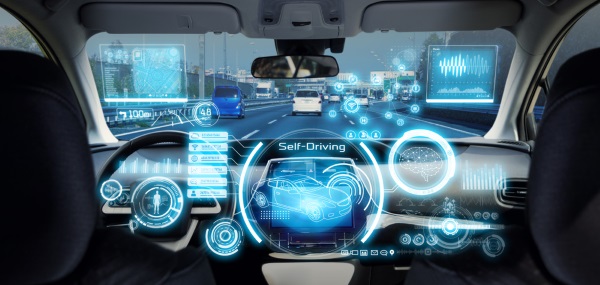Search posts by keywords:
Filter posts by author:
Related NEAT Reports
Other blog posts
posted on Jun 28, 2019 by Dominique Raviart

We recently talked to DXC Technology’s Analytics business line about its work with German premium car OEM BMW, its positioning in autonomous vehicles, and its differentiation strategy.
BMW recently provided some light on the dynamics behind its Vision iNEXT autonomous car due to launch in late 2021. Vision iNEXT, BMW’s first autonomous vehicle, will offer Level 3 autonomous driving as an option. Drivers of Vision iNEXT will be able to surrender control of their vehicles for “long periods” of time and at speed of up to 80 mph.
To support its Vision iNEXT program, BMW started work on its High Performance D3 (Data-Driven Development) program two years ago. D3 reflects that the program is based on the collection of vast amounts of data. BMW is gathering data from its fleet of 80 test 7 Series cars operating in the U.S. west coast, Germany, Israel, and China. BMW is planning to ramp up the number of vehicles in the test fleet to ~140 by the end of 2019, looking to capture vast amounts of data to understand a wide number of traffic scenarios.
The project is about scale. Through its fleet of test vehicles, BMW believes it will have in-car and out-of-the-car sensor data collected across 3.7m miles. However, not all data is relevant and BMW believes it will need to extract 1.5m miles’ worth of data out of the 3.7m. Thus, BMW will need to complement in-field data with simulation-based synthetic data, representing the data collected by autonomous vehicles across 150m miles. The required IT infrastructure shows the scale of the project and requires a storage capacity of 320 petabytes. Over time, BMW will need to reprocess the data and this will demand massive computing power.
This is where DXC Analytics is helping: the unit has been involved at the IT infrastructure and data lake level and designed and deployed the big data solution close to the headquarters of BMW in Munich. To support the project, DXC has used Robotic Drive, a big data platform it has customized to the specific needs of the automotive industry. Robotic Drive combines open source software (e.g. the Apache Hadoop ecosystem of software tools) and several accelerators (e.g. analysis of data in vehicle native format, reference architectures relying on clusters for AI training purposes).
From DXC’s perspective, Robotic Drive, which the company provides as part of its services, is important in differentiating its autonomous vehicle service portfolio. DXC wants to address the high demand for data analytics. As a result, DXC Analytics is focusing on commercial expansion, with Robotic Drive having several clients in Europe, and DXC Analytics is now looking to expand in the U.S. through the creation of a CoE. The unit is also investing in its sales force, recruiting pre-sales consultants, and ramping up its factory-based delivery presence in India and Poland, as well as exploring the Philippines and Bulgaria.
Internal collaboration will also play a role: DXC Analytics is increasingly working with other DXC units, notably around IoT and DXC’s Enterprise Cloud Applications units. An example of joint work is around SAP HANA. Another key event that should accelerate the growth and expand the capabilities of DXC Analytics is Luxoft, whose acquisition has just been finalized.
Luxoft will help expand DXC Technology’s automotive-specific offerings towards digital cockpits, autonomous driving and ADAS. With Luxoft, DXC Analytics gains technical and business expertise. This should help DXC Analytics expand from its big data positioning and gain a stronger footprint on the data science and algorithm side.
